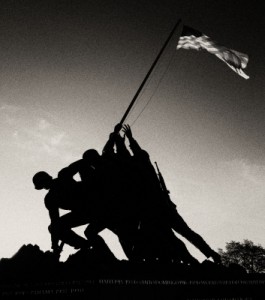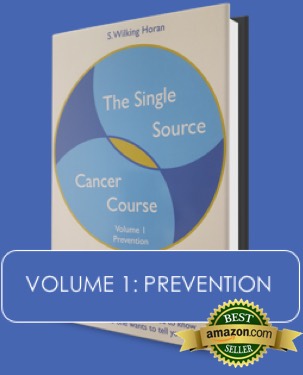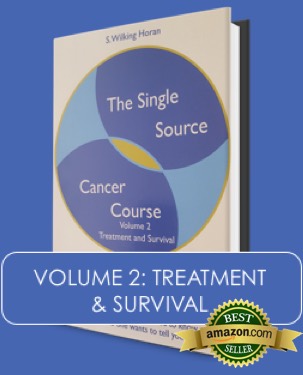VETERANS’ DAY 2015
FIVE MAJOR HEALTH ISSUES AFFECTING AMERICA’S VETERANS AND FIVE GREAT THINGS YOU CAN DO TO HELP
VETERAN: From the Latin “vetus” meaning “old” — and “veteranus” meaning “mature.”
Welcome to another HEALTH and #WELLNESS WEDNESDAY everyone! It just so happens that today is VETERANS’ DAY — and, accordingly our focus will be on the health and wellness of those who have served this country on behalf of all their fellow Americans.
To begin, Veterans’ Day is an official holiday that is always celebrated on November 11. This date is linked to the formal end of World War I, which was recognized at the 11th hour — of the 11th day — of the 11th month– in the year 1918. Now at this time, the Armistice — or peace treaty — with Germany went into effect. And, the first Armistice Day in the United States was celebrated the following year in 1919 on November 11.
Dedicated to the cause of World Peace, Armistice Day was changed to Veterans’ Day by an Act of Congress in 1938. And, in 1975 President Gerald R. Ford officially signed Public Law 94-97 insuring that Veterans’ Day, which honors all who have served in the military, would always be celebrated on November 11 — regardless of which day of the week it fell.
Now, Veterans’ Day is not to be confused with Memorial Day. You see, Memorial Day is a day of remembering soldiers and civilians who died while serving their country. In contrast, Veterans’ Day celebrates the service of all U.S. military personnel — and focuses primarily on those who survived their service.
But, as anyone who has survived significant trauma knows, survival is sometimes just the beginning of yet another series of battles. Individuals returning from combat often bring a litany of unique health care needs back with them. The wounds of war extend far beyond those that meet the eye. They can persist far away from the battlefields and can color and influence a returning soldier’s home life, family life and work life.
While the list is long, here are FIVE OF THE MOST COMMON HEALTH ISSUES affecting our Veterans today:
1) MENTAL AND PSYCHOLOGICAL ISSUES: War is traumatic. And, Post Traumatic Stress Disorder is one of the leading health issues facing our returning Veterans. The symptoms of PTSD can include sleeplessness and recurring nightmares, feelings of anger and irritability, loss of interest, depression and alcohol abuse. Severe PTSD also is linked to the development of several physical ailments and to a greater risk for developing dementia in later life.
2) INFECTIOUS DISEASES: The military does its best to offer routine vaccinations to all personnel traveling abroad. However, according to the U.S. Department of Veterans’ Affairs, returning war Veterans still suffer disproportionately from rare infectious diseases for which we have no vaccines. These include Leishmaniasis, a parasitic disease caused by the bite of a Middle Eastern sand fly and Brucellosis, a bacteria found in goats and sheep in parts of the world, including the Middle East. Such infections can result in years of abdominal pain, fever, diarrhea, anemia, headaches and organ damage. And, if left untreated, these diseases can prove fatal.
3) MUSCULOSKELETAL PAIN AND INJURIES: Over half of all Veterans experience continuing pain in their necks, backs, shoulders and knees. Indeed, the Journal of Pain reported in August of this year that approximately 100,000 Veterans of the Gulf War are still reporting problems with chronic muscle pain after nearly 20 years.
4) TRAMAUTIC BRAIN INJURY: Often referred to as TBI, this injury typically is the result of a blow or jolt to the head. Indeed, TBI has been called the “signature wound” of Veterans returning from war in Iraq and Afghanistan. Military personnel exposed to the shock of explosive blasts often experience concussions, which may result in long-term damage. The effects of TBI include language disabilities, memory loss, inability to process information, irritability, depression, headaches and of course, Post Traumatic Stress Disorder.
5) CHEMICAL EXPOSURE: Environmental agents and toxic chemicals are common in war and on the battlefields. For example, exposure to nerve agents such as sarin can trigger convulsions — and may cause long-term damage to the heart. According to the American Heart Association, Veterans from the Gulf War who were exposed to this chemical often experience an enlarged left ventricle, a reduction in the pumping strength of the heart and abnormalities in the heartbeat and rhythm.
Now, here in Los Angeles where I live, our West Los Angeles VA Campus is just up the street. Long-time family friend Carolina Barrie, whose family donated the original land to the VA, works tirelessly to transform the Campus into an accessible, user-friendly and Veteran-centric facility. She is joined by our mutual friend, Perry Diller, who helps spearhead the effort to improve resources and conditions for all Veterans who visit the facility seeking assistance.
According to Carolina and Perry, we civilians can make a big difference and show our appreciation for our Veterans in many ways. Here are just FIVE GREAT THINGS YOU CAN DO TO HELP:
1) BE A VOLUNTEER: Locate a Veterans’ Administration Facility near you and volunteer your time. Perhaps you could help file records in the office or greet visiting Veterans. Maybe you could make coffee and make sure that simple supplies like napkins or plastic cups are available. See if the floor needs sweeping or the tables need dusting. Or, perhaps you could just hold someone’s hand. Every effort is greatly needed and appreciated.
2) RUN OR WALK FOR CHARITY: This is always a good way to say, “I care!” Check with your local VA Campus and see if there is an upcoming Charity Run or Walk in which you could participate. This is a great idea for those who love getting outdoors and getting physical. It’s a healthy way to make a difference — and to have fun with like-minded people all while raising money for an important cause.
3) BUY A TICKET: There are many events throughout the year that sponsor our Veterans and Veterans’ Affairs. These fun events can range from neighborhood carnivals, to celebrity appearances, to concerts or bake sales and MUCH more. Just check with the Veterans’ Administration in your town or city to see what might be on their schedule.
4) MAKE A CARE PACKAGE: As we move into the holidays, there’s no better way to lend a helping hand than to mail a care package to military personnel now serving our country. Your local VA can again advise you on the specific items that are always needed and welcome. And, of course, cards with personal messages, home-baked cookies and photographs go a long way in helping ease the trauma and loneliness so often experienced by our men and women in uniform.
5) HIRE A VETERAN: There are many Veterans looking for work. Take the time to see if your company or business has employment opportunities available and share them with your local VA. Check in your neighborhood. Many small businesses are now hiring extra help for the holidays. If so, share that information with your local VA as well. And, don’t forget your own home. We all have odd jobs to do around the house — especially at this time of year. Hiring a Veteran to help replace a leaking roof, or put up the Christmas lights, or paint the garage is a wonderful way to say, “Thank you” and to pay it forward.
So, there we have it. Very important information about a very important subject regarding very important people.
We will all celebrate the upcoming holidays in our own ways based upon our personal traditions and beliefs. This is a privilege and a right we enjoy largely because of the decades-long sacrifices and contributions of our dedicated Veterans and men and women in uniform.
So, enjoy this Veterans’ Day everyone in an atmosphere of appreciation for the past and steadfast hope for the future. And, of course, enjoy it in GOOD HEALTH! Until next time,
TAKE THE COURSE AND TAKE CHARGE!
Image Courtesy of Damian Brandon at FreeDigitalPhotos.net




Leave a Comment